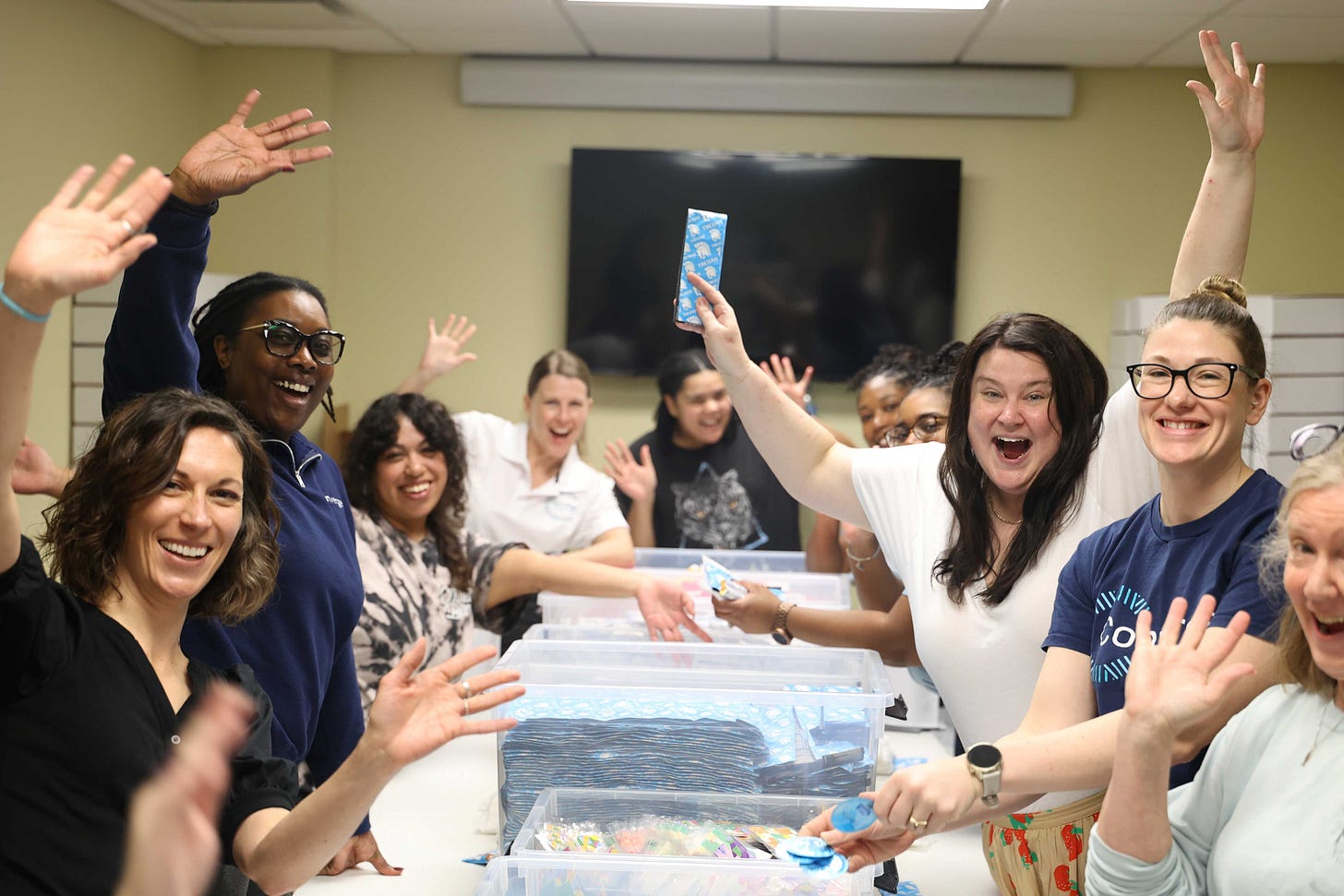Reproductive and sexual care nonprofit expands services despite federal cuts
A multimillion-dollar private grant to Converge, a Jackson-based nonprofit, will expand access to reproductive and sexual healthcare in Mississippi despite recent federal healthcare cuts.
Mississippians Jamie Bardwell and Danielle Lampton founded Converge with a vision that everyone in the South, regardless of where they live, their income or their health status, deserves access to reproductive and sexual healthcare that meets their needs.
Converge is Mississippi’s only grantee under Title X, the federal program that funds direct patient services for reproductive healthcare, including basic infertility and contraceptive care and the prevention and treatment of sexually transmitted infections.
Within the last year, Converge’s network of Title X family health clinics and other providers in Mississippi treated 17,000 patients and provided 30,000 discreet reproductive and sexual health services to those patients.
Converge also operates its own telehealth program, known as Get Personal, which scheduled 2,800 telehealth appointments last year. This month, Get Personal opened its first brick-and-mortar clinic at the Jackson Medical Mall. Whether via telehealth or in-person, Get Personal is able to provide STI testing and treatment, prenatal vitamins, contraceptive counseling, Medicaid Family Planning enrollment, free reproductive health kits, and referrals as needed.
Beyond direct services to patients, Converge conducts outreach and education efforts to attract patients and connect them with care providers in high-need communities. Audrey Sandusky, Vice President for Communications and Marketing at Converge, said education is an important component of Converge’s work.
“Misinformation and disinformation is a growing concern for the [reproductive healthcare] field,” particularly as myths are circulated on social media and by word of mouth, Sandusky said. Patients also face societal, cultural and economic barriers and stigma that prevent them from obtaining care, and many live in rural areas considered healthcare deserts. So, while funding for direct patient services is crucial, additional work is required to get patients physically in a healthcare provider’s door (or on her screen for telehealth appointments).
The outreach and education component depends on a community engagement version of the brand ambassador: Converge recruits, hires, trains and equips contractors to share information about Converge and its services to people in the communities of greatest need.These trusted “community connectors” table at community events, health fairs and school events year-round, and they host a college fair in the fall. As spokespeople for Converge, they provide accurate, evidence-based information about the positive impact of birth control and other services Converge and its network of clinics provide.
Converge also works to ensure that its patients receive high quality care that is not only affordable but is sustainable and responsive to the patients’ lived experiences. Converge’s private funding–including the recently announced $5 million grant from Pivotal Ventures Action for Women’s Health–is integral to its success.
Funded by Melinda French Gates, the Action for Women’s Health initiative awarded grants ranging in size from $1 million to $5 million to 80 organizations across the world to address the physical and mental health needs of women. Remarkably, Converge received the largest grant of any of those 80 recipients. With this unrestricted private funding, Converge intends to use a portion of the grant to scale up Get Personal’s telehealth and in-person services to reach more patients in its existing footprint of Mississippi and Tennessee and to expand its footprint into other parts of Tennessee as well as Alabama and Louisiana.
The Pivotal funding will also enable Converge “to innovate beyond what our federal grant would allow, whether through partnering with providers across the South to improve quality and access, to reduce stigma, to increase visibility to other organizations providing care, or piloting new service delivery models to bring healthcare closer to home for those who need it most,” Sandusky said.
Because Converge is allowed to use its grant from Pivotal to explore better, more effective ways to provide sexual and reproductive healthcare, as well as to provide direct services to patients, the funding helps the nonprofit stay resilient in the face of federal funding volatility.
Converge was one of many organizations that faced an existential crisis earlier this year as a result of federal funding freezes spurred by Elon Musk’s DOGE. The federal government stopped Converge’s funding for three months, during which it accused Converge of violating federal civil rights law by acknowledging the existence of racism in the delivery of reproductive healthcare. Ultimately, that dispute was resolved and Converge’s funding was restored, but not without significant pain. Converge was forced to lay off staff and cut some services, just as many of the healthcare providers in its network were forced to do.
The grant from Pivotal will also help Converge and its partners absorb some of the shock expected in the healthcare system as a whole, as more and more patients lose Medicaid coverage and private health insurance in the coming months and years. Sandusky anticipates demand for the services Converge provides will increase as the healthcare cuts in the Big Beautiful Bill take effect and as families are no longer able to afford health insurance on the Affordable Care Act marketplace. Converge provides its services for free or at low cost, based on a sliding scale.
At a time when many organizations continue to question their viability because of federal funding cuts, Converge is poised to grow. The grant from Pivotal Ventures is proof that Converge’s model for service delivery and community engagement around reproductive and sexual healthcare in the Deep South is working and that major funders trust the organization and its partners to connect people with the healthcare they need, regardless of the barriers they face.
Image: Converge staff prepare free reproductive health kits (courtesy Audrey Sandusky)


